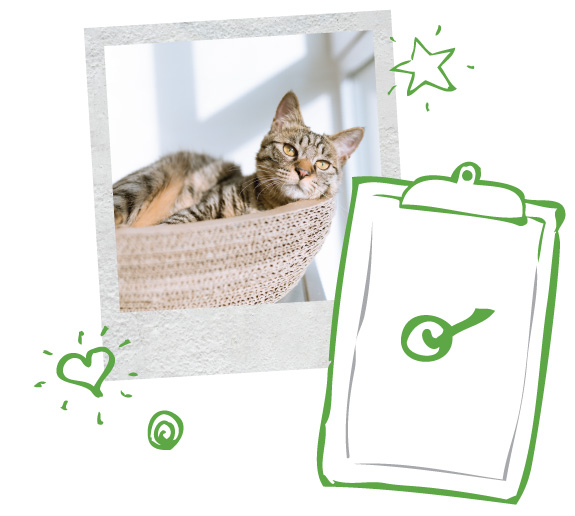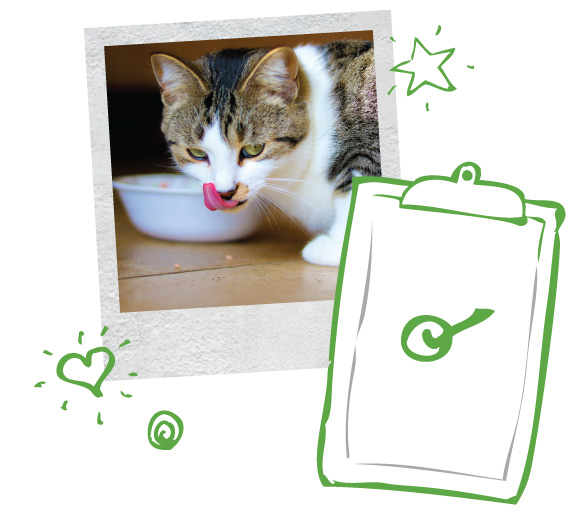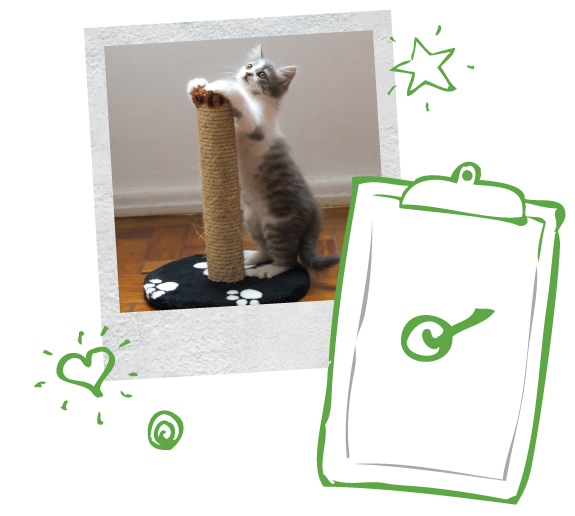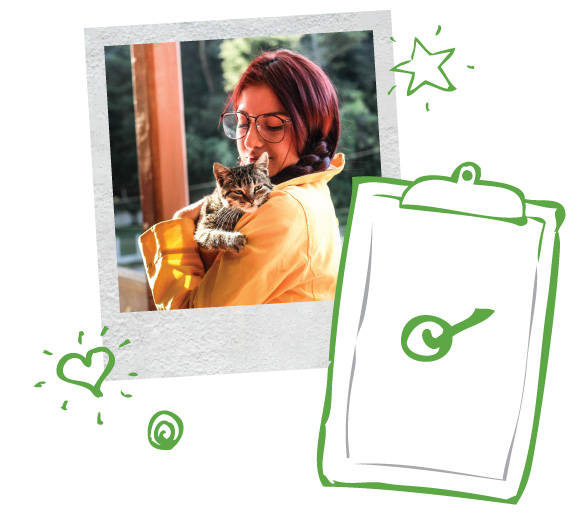
How to prepare for your new cat:
5 things you must do
Congratulations on adopting your new cat! To help you get ready for their arrival, we’ve put together this ‘to do’ list and our vet Harriet has made a video full of great advice.
Following this list and Harriet's advice will help you meet your legal duties, too. Under the UK’s Animal Welfare Act, you’re legally obliged to give your cat:
- A suitable place to live
- A healthy diet and access to clean water
- The ability to behave normally
- Appropriate company
- Protection from pain, injury, suffering and disease.
1. Create safe spaces
To feel safe and secure, cats need their own bed, hiding places and somewhere high up to view their surroundings.
Buy a comfortable and warm cat bed like an igloo or hammock, and put it somewhere quiet. You might want to buy more than one bed and have them in different rooms.
You can make beds and hiding places, too. Get an appropriate-sized cardboard box, turn it on its side and put a snuggly blanket inside. Again, place this in a quiet spot.
Putting cosy blankets on top of wardrobes, shelves and windowsills is a great way of giving your cat somewhere high up to hide.

2. Set up a litter tray or outside toilet
Cats like to go to the toilet where they feel safe, and in a place that allows them to bury their waste afterwards.
If your cat already uses a litter tray or you don’t have a garden, you’ll need to set up a litter tray before they arrive.
If your cat prefers to toilet outside and you’ve got a garden, or you want to train them to toilet outside, pick an area that’s close to the house yet private. Once they arrive, you can encourage them to toilet there.
For more information on setting up litter trays and toilet training cats, visit:

3. Stock up on the right food
Cats must have healthy, balanced diets and access to fresh water at all times. At first, it’s best to continue with the food the cat has been used to. Ask the person you’re adopting from what the cat eats, then buy plenty of it.
Even if you want to change their diet, this should be done gradually and under the guidance of your vet.
Lots of cats like to eat a special type of grass called Cocksfoot because it helps them clear furballs. Have some in the house to stop them chewing other houseplants!

4. Get a scratch post
Scratching is a big part of being a cat. Encourage them to carry out this natural behaviour by investing in a proper scratch post. This will discourage them from stretching and scratching on your furniture, too.
Put the post near their bed so they can stretch and scratch when they wake up – something that most cats tend to do.

5. Plan for holidays
Even though cats are relatively independent pets, they can’t be left alone for long periods of time. When you go away, you’ll need to find a cat-sitter or put them in a cattery. Research your options early so you don’t end up in a difficult situation.

6. Register with a vet
You have an ongoing duty to care for your cat’s health, so register your cat with a vet immediately. Watch Harriet's video to find out about why this is so important.
As Harriet explains, you should get as much information as possible about your cats health from their previous owner. Ask for: details of their old vet, vaccination records, information about any health conditions and medications, and whether or not they've been microchipped.
More information about cat welfare may be found in the Cat Welfare Code of Practice

